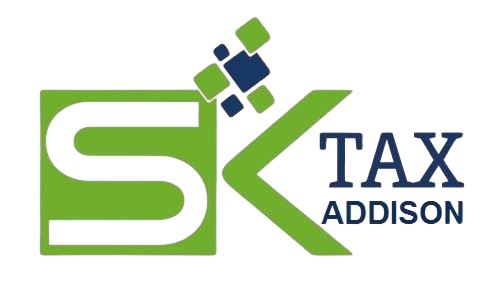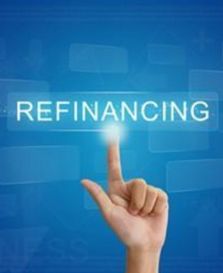Commercial Loan Services
At SK Tax Addison, we recognize that securing the right financing is essential for business growth and stability. Our commercial loan services are designed to help businesses navigate the complexities of obtaining financing tailored to their specific needs. Whether you’re looking to expand operations, invest in new equipment, or manage cash flow, our team of experts is here to guide you through the loan application process and help you secure the best terms.
We take the time to understand your business goals and financial situation, enabling us to recommend the most suitable loan options. With our extensive network of lenders and in-depth knowledge of the lending landscape, we empower you to make informed decisions that align with your financial strategy.


We are the best brokers for Commercial loan in all states

We give you the possibility of having the best interest rate for your loan.

We put our effort to close a deal as soon as possible
We have 15 years experience
We close more than 20 loans per month
At Ska Tax Addison, we specialize in all types of commercial loans, offering unmatched
expertise and exceptional service across all states. Our commitment is to secure the best interest
rates to your loan. We leverage our relationships with top lenders to find the best rates for your
loan. With our extensive network and industry knowledge, we ensure you get the most favorable
terms available. Start working with the greatest broker in Chicago and take your business to the
next level. Contact us today to start your journey!


Types of commercial loan
SBA 7(a) Loan
A versatile loan program designed to help small businesses purchase property, expand, or renovate owner-occupied real estate with flexible terms
SBA 504 Loan
Ideal for financing large-scale projects like buying owner-occupied real estate or equipment, offering low fixed rates and long repayment terms.
Conventional Loan
A flexible financing solution for established businesses to fund real estate, equipment, or operational needs without government backing.
Construction Loan
Tailored specifically and strategically for businesses looking to build or renovate commercial properties, offering short-term funding with options to convert to long-term financing.
Hard Money Loan
Hard money loans are primarily secured by the value of the property or asset being financed, rather than the borrower’s credit worthiness or income level
$100,000 Line of Credit
A revolving credit line that provides ongoing access to funds for managing cash flow or covering unexpected expenses.
Refinancing a loan
Refinancing a loan involves replacing an existing loan with a new one, often with different terms. This process can help you lower your interest rate, reduce monthly payments, or change the length of your loan.

2,500 industry experts

40 years of experience

Skills and experience

125 branches worldwide
Refinancing a loan
Refinancing a loan involves replacing an existing loan with a new one, often with different terms. This process can help you lower your interest rate, reduce monthly payments, or change the length of your loan.
Reasons to Refinance a Loan:
Lower Interest Rates
Refinancing can reduce your interest rate, potentially saving you money over the life of the loan and lowering your monthly payments.
Change Loan Terms
Adjust the length of your loan to either shorten the term (for higher payments but less interest over time) or extend it (for lower payments but more interest overall).
Change Loan Type
Switch from an adjustable-rate mortgage (ARM) to a fixed-rate mortgage to lock in a stable rate, or vice versa, depending on market conditions and your financial goals.
Consolidate Debt
Combine multiple loans or debts into a single loan with potentially better terms or a lower interest rate.
Access Equity
For mortgages or real estate loans, refinancing can allow you to tap into the equity of your property for cash-out purposes, which can be used for home improvements, debt consolidation, or other needs.
Improve Loan Terms
Modify existing terms to better fit your current financial situation, such as reducing prepayment penalties or adjusting the payment schedule.
Reasons to Refinance a Loan:
Lower Interest Rates
Refinancing can reduce your interest rate, potentially saving you money over the life of the loan and lowering your monthly payments.
Change Loan Terms
Adjust the length of your loan to either shorten the term (for higher payments but less interest over time) or extend it (for lower payments but more interest overall).
Change Loan Type
Switch from an adjustable-rate mortgage (ARM) to a fixed-rate mortgage to lock in a stable rate, or vice versa, depending on market conditions and your financial goals.
Consolidate Debt
Combine multiple loans or debts into a single loan with potentially better terms or a lower interest rate.
Access Equity
For mortgages or real estate loans, refinancing can allow you to tap into the equity of your property for cash-out purposes, which can be used for home improvements, debt consolidation, or other needs.
Improve Loan Terms
Modify existing terms to better fit your current financial situation, such as reducing prepayment penalties or adjusting the payment schedule.
How We Handle R&D Tax Credit Services

Commercial Lending
These loans are given to business organizations. These loans help to assist one with short term funds needed for buying pieces of equipment or funding the operation costs. They are most popularly used for short term funding purposes.

SBA Lending
Small Business Administration helps to ensure that ad advance is offered by the money lenders and the banks. SBA credits have a long reimbursement period. For working capital, the period is seven years, for buying hardware the period is 10 years, and for purchasing land, the period is 25 years.

Commercial Real Estate
In a majority of the cases, the business property is rented. Only a few business companies have a place of their own. A financial specialist claims the structure and this person takes the lease for every kind of business that operates there.

Equipment Loans
For purchasing hardware for the business, these kinds of loans are given to the people. The person taking the loan must compensate this advance amount during the life expectancy of the machine. The banks use the hardware as security for situations when the business will not be able to pay back the loan amount.

Invoice Financing
Invoice financing allows businesses to borrow money against the amounts due from their customers. This type of loan is ideal for managing cash flow gaps caused by unpaid invoices, ensuring uninterrupted operations. It helps businesses meet short-term needs like payroll, inventory purchases, or other operating expenses without waiting for customers to pay.

Startup Loans
Startup loans are designed specifically for new businesses or entrepreneurs. These loans provide the capital needed to kickstart operations, such as funding for office space, inventory, technology, or marketing. They are tailored to support businesses in their early stages, offering flexible repayment terms and competitive interest rates.
We have 15+ years experience
“We have over 15+ years of experience providing expert financial advice to both businesses and individuals.”
At Ska Tax Addison, we specialize in all types of commercial loans, offering unmatched expertise and exceptional service across all states. Our commitment is to secure the best interest rates to your loan. We leverage our relationships with top lenders to find the best rates for your loan. With our extensive network and industry knowledge, we ensure you get the most favorable terms available. Start working with the greatest broker in Chicago and take your business to the next level. Contact us today to start your journey!
Request a call back
Dolor in reprehenderit in voluptate velit esse cillum dolore eu fugiat nulla pariatur excepteur sint occaecat
Our expert
Our Commerical Loan expert specializes in maximizing benefits for your innovation efforts. With extensive knowledge of qualifying activities and compliance requirements, they provide tailored strategies to reduce your tax burden and boost cash flow, empowering your business to invest in groundbreaking developments confidently.

Get in Touch
Come and visit our quarters or simply send us an email anytime you want. We are open to all suggestions from our clients.
Office address
Opening time
Mon - Fri
9:30 – 16:30
Live help
Phone : (847) 264-9499
Fax: (847) 349-4409
Direct number : (847) 999-3370
Email us
finance@sktaxaddison.com






